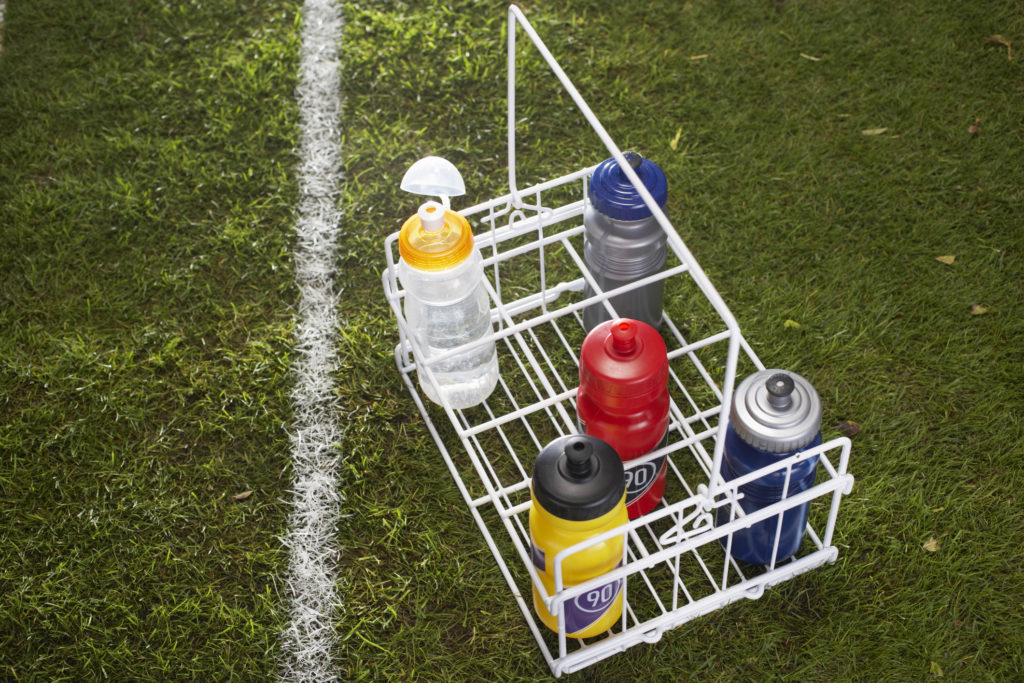Chow Line: Reusable water bottles need to be washed between uses

After every use, wash your bottle in hot water with a teaspoon of unscented dish soap added. Submitted photo.
I heard recently that reusable water bottles can sometimes be a hotbed of germs. Is that true?
Yes, at least according to a recent analysis from Treadmill Reviews that found that unwashed reusable water bottles could harbor significantly high levels of bacteria that are harmful to humans.
In fact, the report goes as far as to say that “drinking from the average refillable bottle can be many times worse than licking your dog’s toy.” According to the study, the average athlete’s water bottle has 313,499 colony-forming units, or CFUs, of bacteria per square centimeter while the average pet toy has 2,937 CFUs.
Yuck.
The study, which was performed by EmLab P&K, a New Jersey-based environmental testing firm, analyzed 12 types of water bottles and found differing amounts of CFUs based on the design of the bottle.
For example, slide-top bottles harbored 933,340 CFUs, compared to squeeze-top bottles at 161,971 CFUs and screw-top bottles at 159,060 CFUs. The bottle type that harbored the fewest bacteria was the kind with a straw top, which measured 25.4 CFUs.
But, that doesn’t mean you should toss your reusable water bottles and opt exclusively for store-bottled water instead. The report offers the following options for consumers to still get their required daily water intake while lessening their chances to encounter harmful bacteria and limiting their consumption of single-use containers:
After every use, wash your bottle in hot water with a teaspoon of unscented dish soap added. Soak it for a few minutes, rinse it well using warm water, and allow it to dry completely before the next use.
Occasionally use a weak bleach solution of 1 tablespoon of bleach per quart of water to sanitize the bottle.
Avoid letting your water bottle sit half full for long periods in between use.
Opt for using a straw-top water bottle. In the study, these types of bottles were found to have a lower prevalence of bacteria.
Opt for a stainless steel bottle.
Try to find a water bottle that doesn’t contain crevices and harder-to-clean spots. This will lessen the potential for harboring harmful bacteria, the study says.
Whatever you decide to do with your water bottle, it is important to remember that staying hydrated is a key part of staying healthy. Consuming an adequate amount of fluids helps to maintain body functions, including those of your heart, brain and muscles. Fluids also serve to carry nutrients to your cells, keep your temperature normal, digest food, flush bacteria from your bladder and prevent constipation.
Healthy people should get 30 to 50 ounces of water per day, which translates to about 4 to 6 cups or 1 to 1.5 liters, according to recommendations from doctors at Harvard Medical School. In addition to water, milk is also a good option to help in hydration.
So clean those water bottles and keep up your daily fluid intake. Your body will thank you later.
If you’re a business owner looking to get your brand out into the world for a publicity boost, water bottles might just be the answer! Custom Water allows you to order bottled water at affordable prices with your company’s branding and logo which will generate large ROI whilst also impressing your customers!
Chow Line is a service of the College of Food, Agricultural, and Environmental Sciences and its outreach and research arms, OSU Extension and the Ohio Agricultural Research and Development Center. Send questions to Chow Line, c/o Tracy Turner, 364 W. Lane Ave., Suite B120, Columbus, OH 43201, or [email protected].









